Have you recently moved to the Netherlands and are confused about how gynaecology, contraception, checkups and everything that comes with it works here? Then look no further!
We’ve got all the information about your reproductive healthcare in the Netherlands right here.
First things first: get health insurance
First of all, if you’ve recently moved here, you should get yourself some Dutch health insurance right away.

While there are certain exceptions where you do not need health insurance, it’s extremely helpful when it comes to organising contraception, checkups, and everything that comes with having a uterus in the Netherlands.
You could also be entitled to a healthcare allowance, which is a generous benefit from the government that, depending on your situation, helps you to pay for this.
READ MORE | The Complete Guide to Getting Health Insurance in the Netherlands
The second thing you should do is register at a Dutch GP (a general practitioner or huisarts). The good news is that most Dutch medical workers speak English and are multilingual.
Birth control in the Netherlands
Ok, let’s start simple and let’s talk contraceptives in the Netherlands.
If you’re looking to start birth control in the Netherlands, you first need to register yourself with your local GP and make an appointment.

During this appointment, you can discuss which contraceptive will be the best fit for you.
READ MORE | How to register with a doctor in the Netherlands
If, however, you’re still not ready by the end of the session (because there are so darn many to choose from), they’ll give you a bunch of leaflets that you can take away and read.
A few examples of contraceptive pills used in the Netherlands: Neogynon, Lovette, Stediril-d, Microgynon-30, Stediril 30.
Remember: Pills and injections that change your body’s hard wiring are a big deal. If you’re uncertain, don’t feel pressured to make the decision within the space of one doctor’s appointment.
If, after a while, your initial choice doesn’t work for you or your hormones are flipped out of whack, you can always change.
Fun fact: If you’re under 21, the Dutch government covers the cost of contraception (in the form of reimbursements) for you. Hoera! 🥳
Where can I get birth control in the Netherlands?
- If you have a prescription from the doctor, you can buy birth control pills at your local pharmacy (apotheek). Some are even open late or on the weekends.
You can also get refills of birth control pills without getting a new prescription, so you don’t have to waste time booking another appointment — handig! - You can buy condoms at pharmacies, supermarkets and some vending machines.
- If you want an IUD (intrauterine device, AKA the coil), Mirena and Flexi-T are the two main kinds that you can get here. This will be fitted at a GP or hospital.
- The injection (Depo-Provera, for example) is also available in the Netherlands. If you’re over 21 and want your costs reimbursed, you can get an additional health coverage package that includes the implant.
Fun fact: According to Gynopedia, around 40% of Dutch women aged 15-30 use the pill, and 5-10% of patients use IUDs. Diaphragms are apparently the least popular method of birth control.
Gynaecology in the Netherlands
Birth control is, of course, just one aspect of life with a uterus. Another very important element of healthcare for many in the Netherlands is gynaecology.
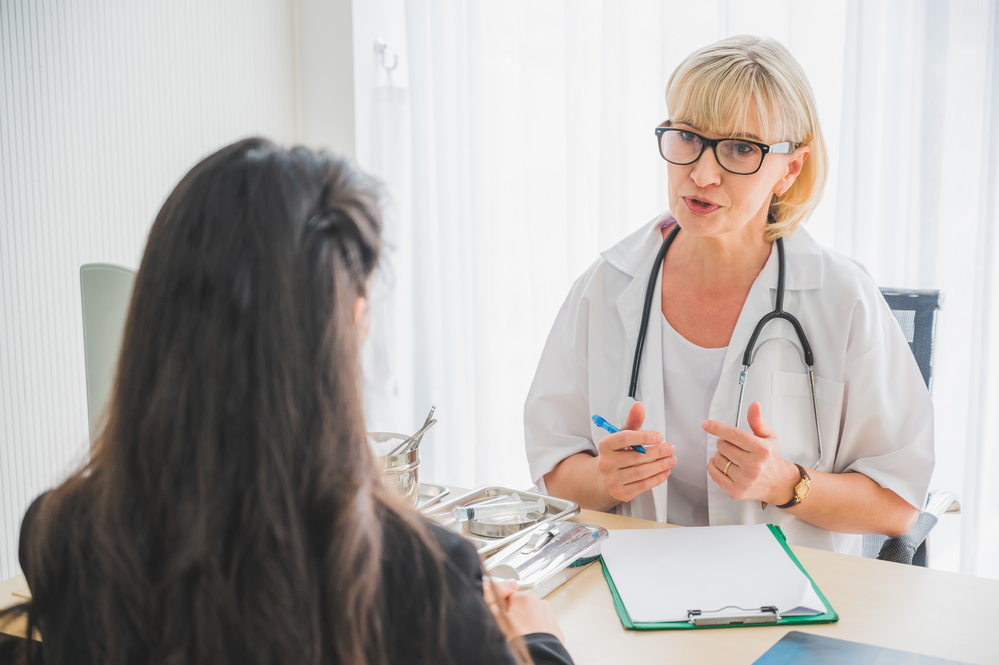
Where can I find a gynaecologist in the Netherlands?
Gynaecological care can vary hugely between countries, but the good news is that there are a bunch of practices in the Netherlands provided by the Dutch healthcare system.
READ MORE | I had a good experience with the Dutch healthcare system, am I the only one?
Just like with prescription contraceptives, you’ll first have to speak to your GP about the possibility of seeing a gynaecologist, even if you just want a regular checkup.
The process is simple, as your GP will refer you and… voilà, you’ll have an appointment.
Can I ask to see a specific gynaecologist?
In the Netherlands, you generally don’t see private gynaecologists.
Even if you have your own private health insurance, you must register with a GP, just like everyone else. From there, your GP will refer you.
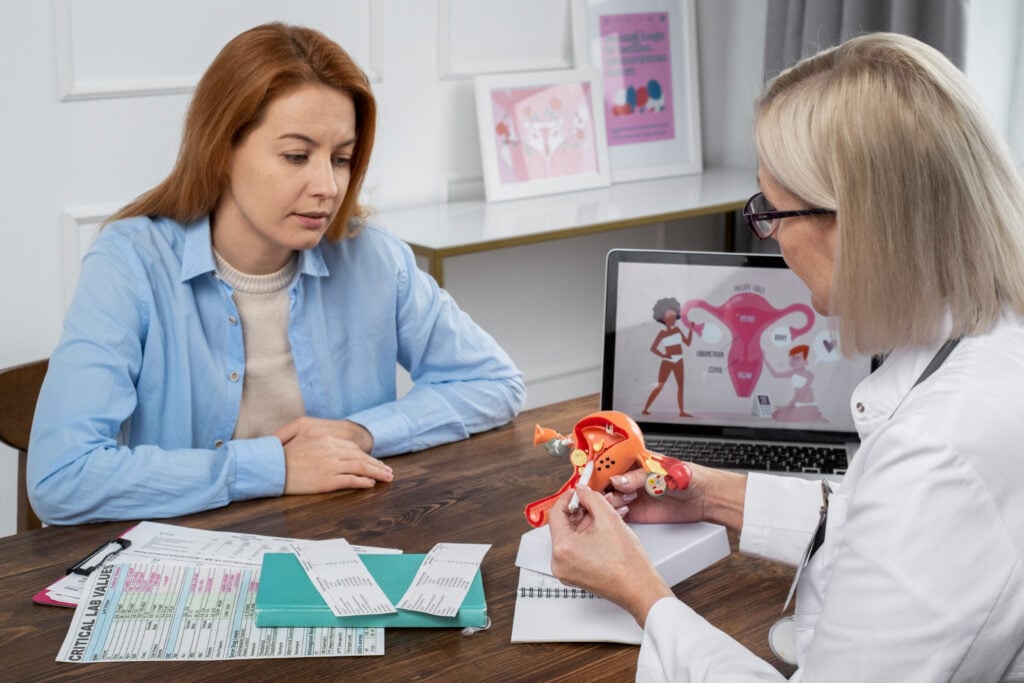
Of course, you do have some control over who is assigned as your gynaecologist. For example, if you would rather be treated by a female doctor, you can let your doctor know this.
If you really don’t like the gynaecologist that you have been referred to, there’s no shame in asking to see someone else, but a change is not guaranteed.
Reproductive health check-ups in the Netherlands
They say prevention is better than cure, so naturally, you’d want to stay on top of your reproductive health in the Netherlands.
The best way of doing this is by organising regular check-ups.
How do I get check-ups for my healthcare?
When you register with a GP, you can pass on all your medical records for a full assessment.
Remember to tell them any important medical history, even if the problem has been “dealt with”, so to speak.
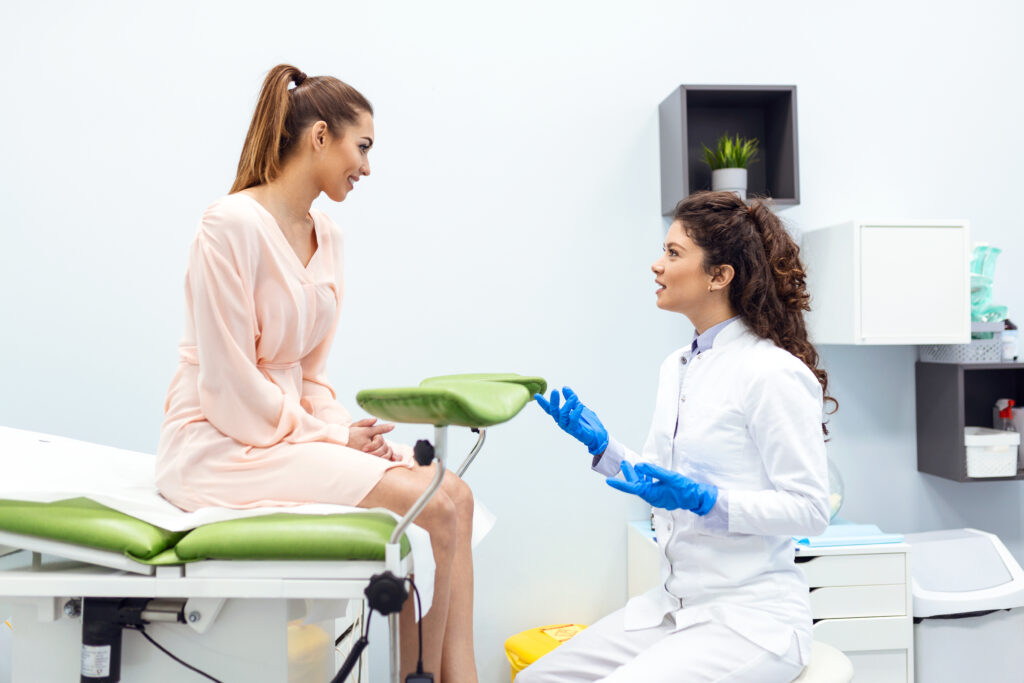
The Dutch don’t typically buy into the whole routine check-up thing, but those with a cervix do get smear tests every five years, and those over 50 get a mammogram every two years.
It’s worth noting that in the Netherlands, you are not expected to start getting PAP smears until you are over 30. However, if you wish to have one before the age of 30, you can request this.
What if I need an STI test?
There are several different ways to get tested for STDs (or SOAs [Seksueel Overdraagbare Aandoening], as the Dutch say).
You can get an STD test at your huisarts (GP) or at the GGD (Gemeentelijke Gezondheidsdienst or municipal health services).
If you are not comfortable with either of these options, you can also opt to order an STD test online and take it at home — just make sure they are reliable.
SOAIDS recommends the following tests:
Fertility checks in the Netherlands
If you’re hoping to get pregnant, there are a number of steps you can take.
The Dutch approach to pregnancy tends to be that of “let’s not intervene with nature too much”, which is ironic given that they literally pushed the ocean back to set up shop.
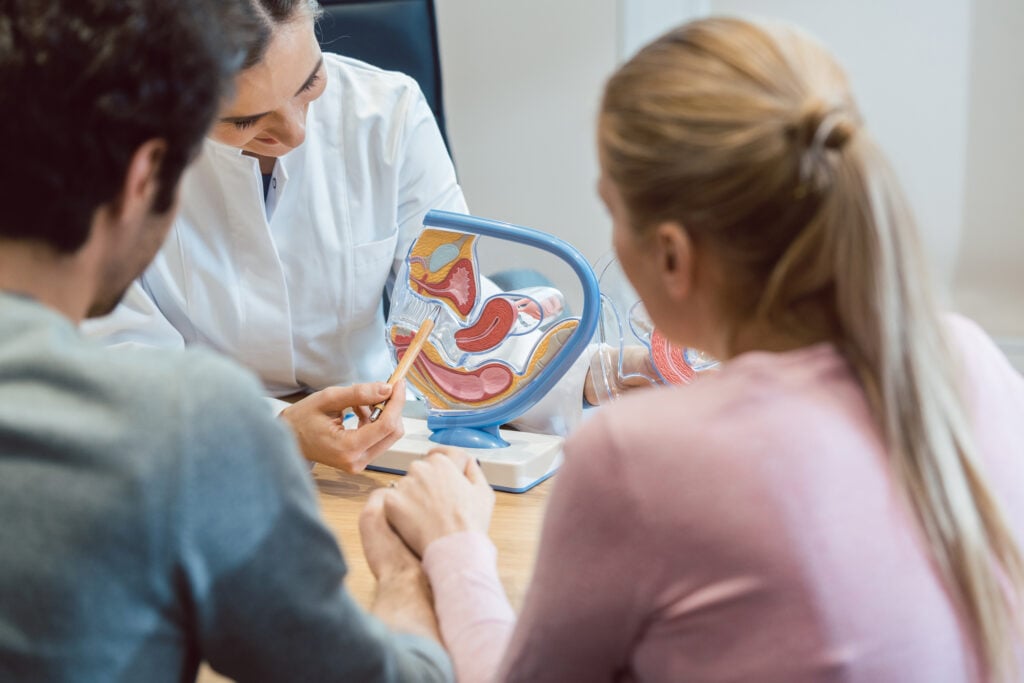
In the Netherlands, unless you have any clear menstrual issues, you must have been trying to get pregnant for at least a year before your doctor will consider any form of intervention.
The next step will then be to book you in for a gynaecological exam to diagnose any potential fertility issues.
Bear in mind that between various appointments and determining a diagnosis, it can take 1-2 years before any further medical intervention is taken.
If you are diagnosed with fertility issues, there are many healthcare services in the Netherlands that can help you get pregnant. Such as:
- hormone therapy,
- IVF,
- artificial insemination, and more.
However, the good news is that there are insurance plans in the Netherlands that will help cover the costs of these treatments.
Pregnancy in the Netherlands
Pregnancy in the Netherlands runs along the same lines as fertility when it comes to the Dutch healthcare system’s approach.
In the Netherlands, they have a very hands-off approach to pregnancy — meaning that over here, it’s all about doing it au naturel.
How do I prepare for childbirth in the Netherlands?
You can have regular check-ups during pregnancy — unless you don’t want to, of course. The Dutch aren’t too pushy on this.
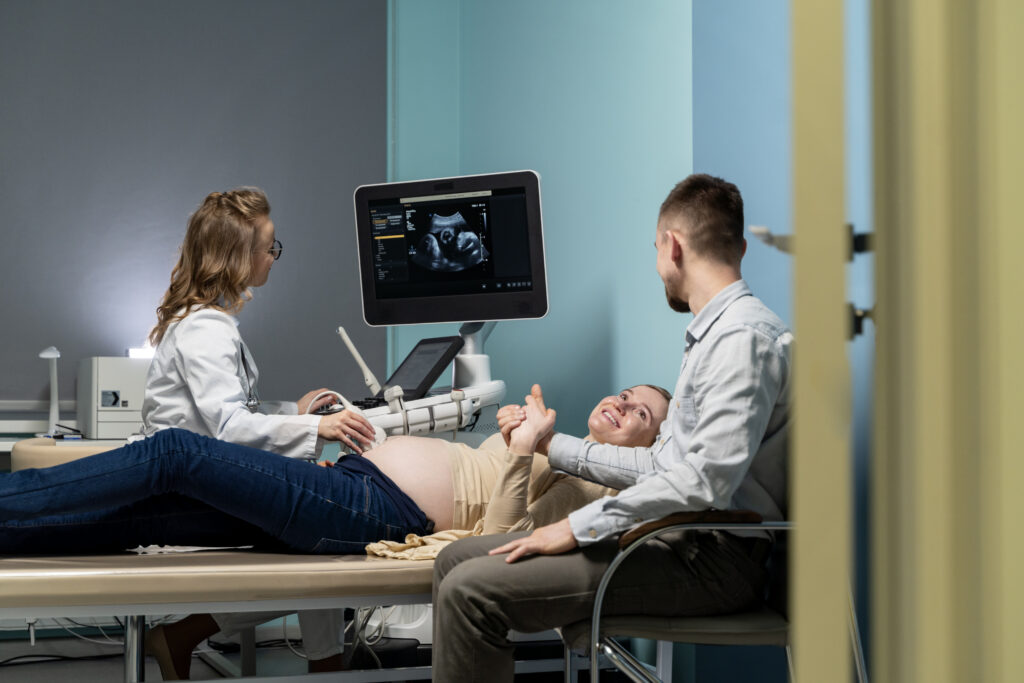
When it comes to who you see during your pregnancy, you have the choice of seeing a midwife (verloskundige), or a gynaecologist as your primary caregiver.
Let op! When it hits baby-delivering time, you might not see the same GYN as you have throughout your pregnancy.
In the Netherlands, a less clinical approach is taken to pregnancy, and this extends to birth, too.
Many opt to give birth at home because they feel more comfortable that way, and pain relief is often not encouraged. On top of this, many Dutchies put their faith in their midwife.
READ MORE | Here are eight things you need to know about giving birth in the Netherlands
Whilst a midwife is associated with the actual labour in other countries, in the Netherlands, you can start meeting with your midwife between weeks 6 and 10 of your pregnancy.
This way, you can begin to plan what sort of labour you would like to have — like, for example, if you’ll be staying at home or would prefer to give birth at the hospital.
Finding a midwife that suits your needs and wishes can be a bit of a challenge for internationals, but the easiest way is to ask your general practitioner for a list of local midwives.
How does maternity leave work?
If you’re pregnant in the Netherlands (congratulations!), you can get 16 weeks of maternity leave (zwangerschapsverlof).
You’ll receive your normal amount of pay from the General Unemployment Fund.
READ MORE | Becoming a father? Here’s everything you need to know about paternity leave in the Netherlands in 2024
You’re also allowed to keep working part-time if you prefer, which is pretty common here.
Abortions in the Netherlands
The Netherlands is world-renowned for its tolerant approach to reproductive rights. Quite naturally, this attitude extends towards the subject of abortion, too.

Can I get an abortion in the Netherlands?
The short answer is “yes”, as abortion is legal in the Netherlands.
In order to begin the process of getting an abortion, you should first go to your GP. They’ll refer you to an abortion clinic or hospital that will perform the procedure.
You can also contact the abortion clinic yourself if you’d prefer.
However, we’re sorry to say that you may have to answer some uncomfortable protocol questions, like why you want to have the procedure.
As of January 2023, it is no longer mandatory to complete a five-day thinking period before having an abortion.
Instead, you can decide, in consultation with your doctor, how many days (if any) you should wait.
Do I have to pay for an abortion in the Netherlands?
If you live in the Netherlands, you do not have to pay for an abortion, as it is covered by your health insurance.
In addition to this, full anonymity is guaranteed. To prove your eligibility, you’ll need to bring along your health insurance card or policy, as well as proof of identity (such as an ID, passport, or driving licence).
Note: In the Netherlands, you are also offered free counselling after having an abortion.
The best advice we can give you on caring for your reproductive health in the Netherlands is to see a GP, check yourself regularly, and get to know your body so that you’ll immediately notice a change.
How have you experienced gynaecology, checkups, and birth control in the Netherlands? Tell us about it in the comments below.

MY insurance doesn’t cover contraceptive pills. Where can I get it reimbursed by Dutch government according to your article? Yes, I’m younger than 21.
Thank you for the informations! Very useful and helpful.
Does The Netherlands have a contraceptive pill called Minerva 35 ? I am moving to Rotterdam from South Africa.
Depo-Provera is not an implant; it is a biannual injection. You likely meant Implanon/Nexplanon. Please correct your article!
Hey Hilary,
Thanks for letting us know! We’ve updated the article accordingly.
It’s no longer possible to get Grip tests 🙁 website says they are taking the company in a different direction.
Sorry but there are some not very true statements here. First of all you cannot choose gynaecologist as your primary caregiver during pregnancy (not surprisied, right). They decide if it is necessary for you to be followed by gynaecologist at hospital. Also, you cannot just be referred to gynaecologist just because you wanted a check up. I have tried to convince my GP many times, if you don’t have a serious issue they don’t think you need to be checked at the hospital. Welcome to Dutch Health Care system.